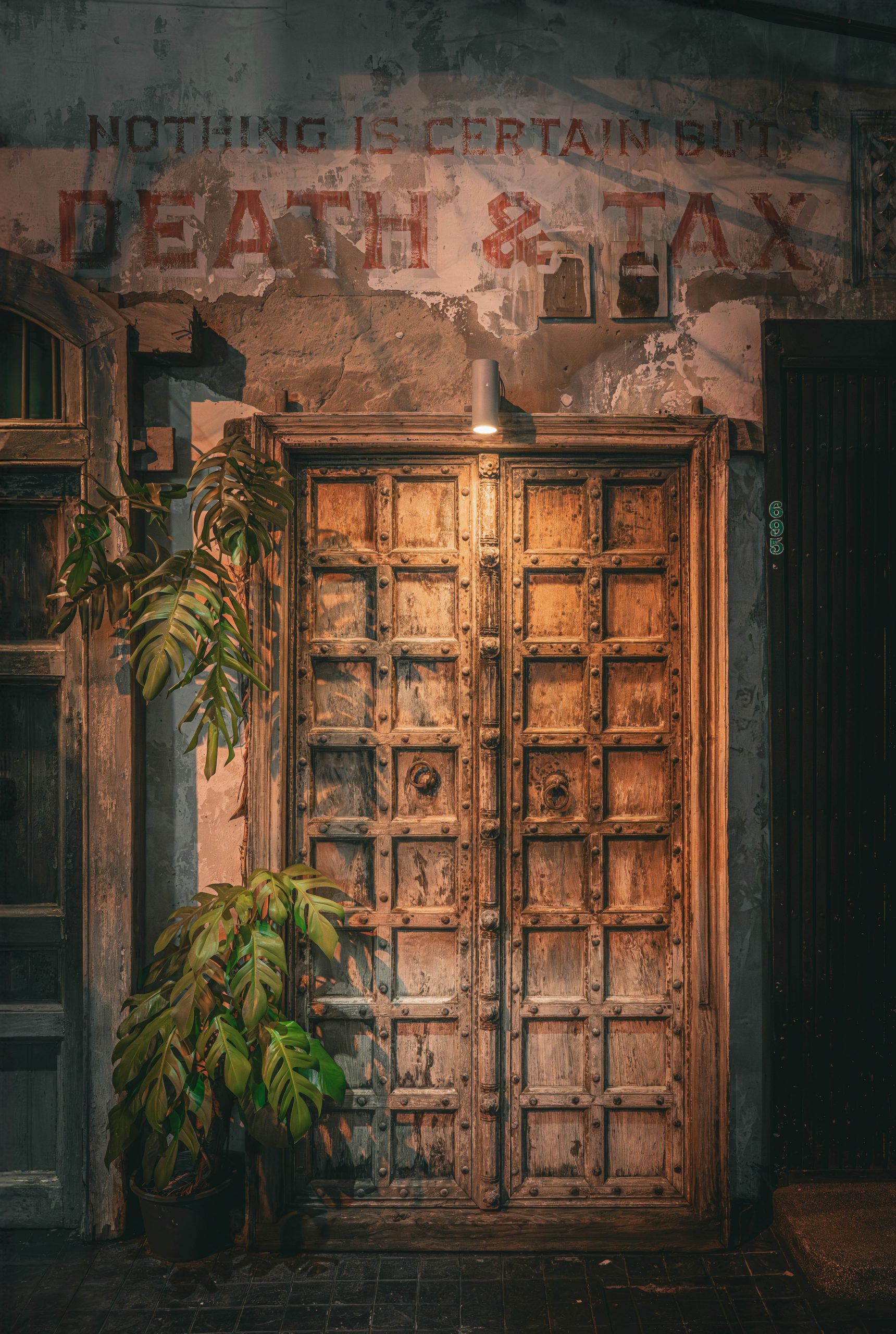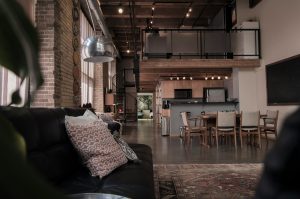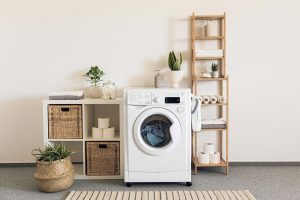Faux Fireplaces For Your Living Room
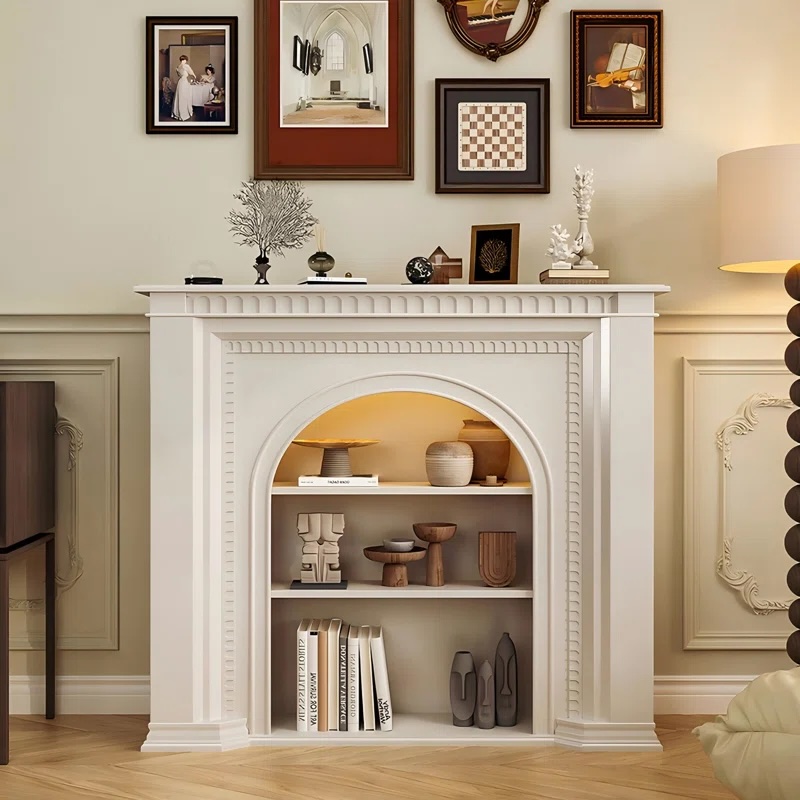
Cozy Fireplaces For Your Living Room
By Brittany Loney | Inspired by C21
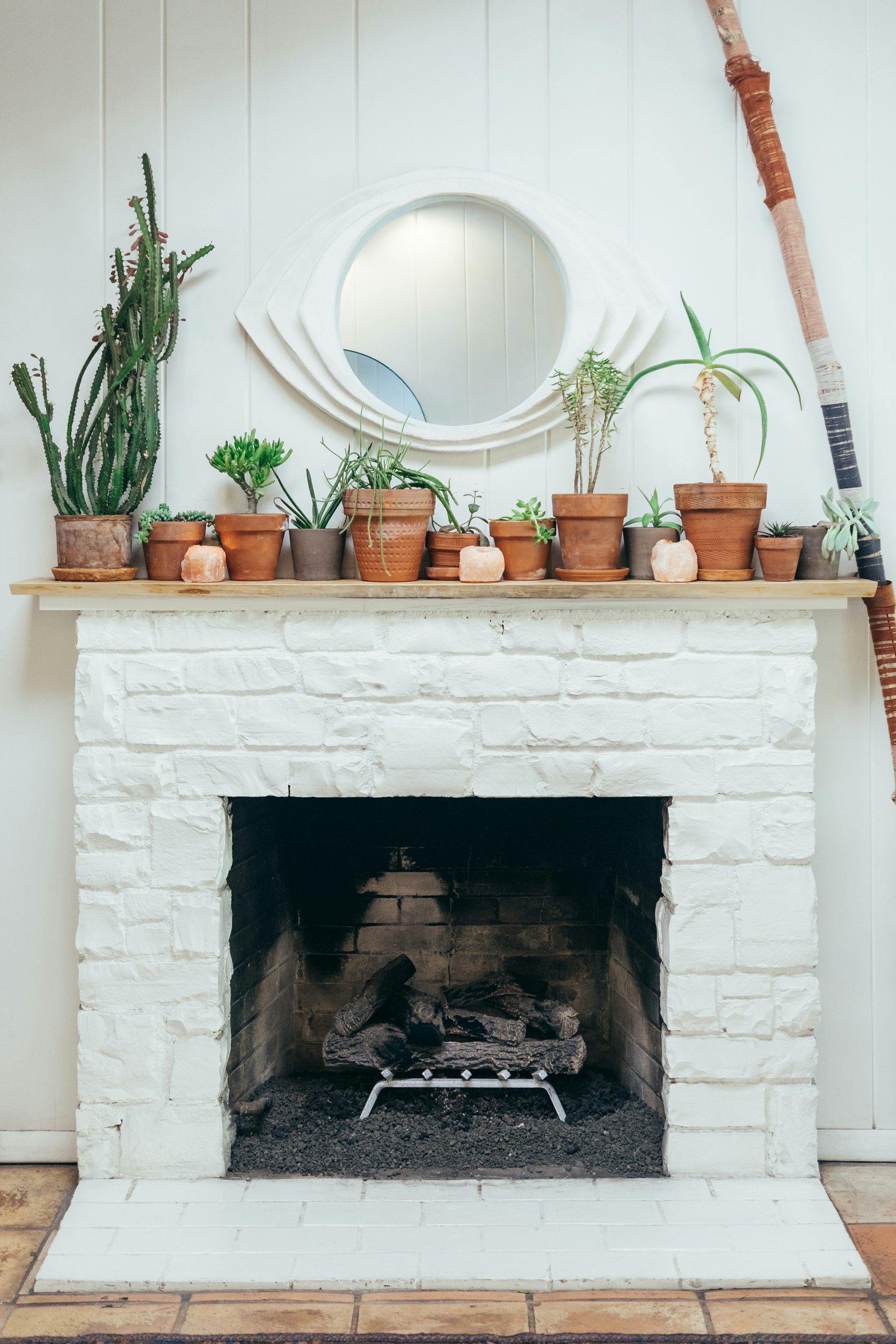
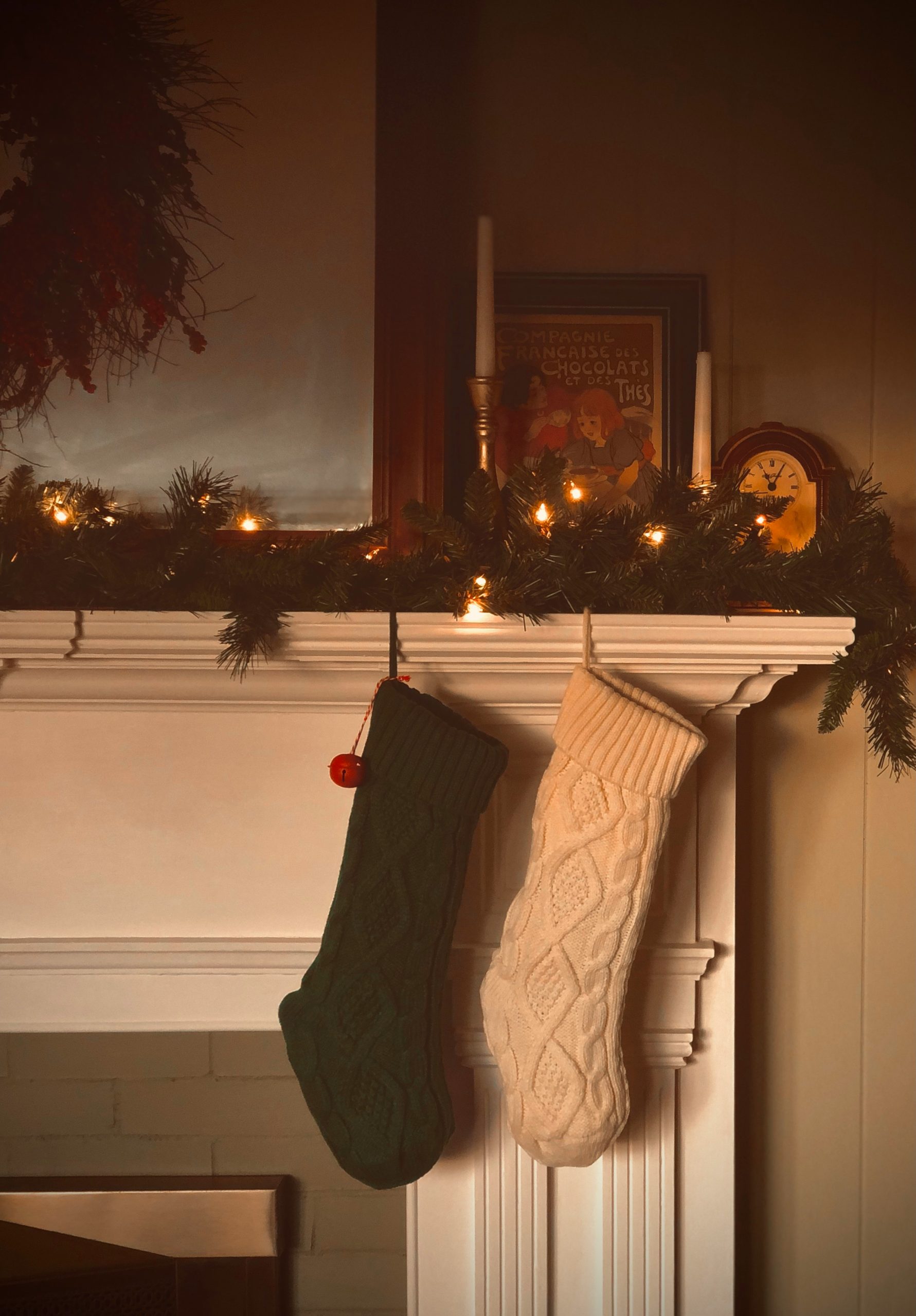
If your home lacks a built-in fireplace but you desire the aesthetic, a faux fireplace could be the perfect solution! These decorative facades provide your living room with a timeless, traditional ambiance while allowing room for creativity in texture and color. Create a cheerful atmosphere by choosing a faux fireplace that offers a lovely spot for your stockings, making your home festive and inviting.
1. Create A Mantle Frame With A Shelf
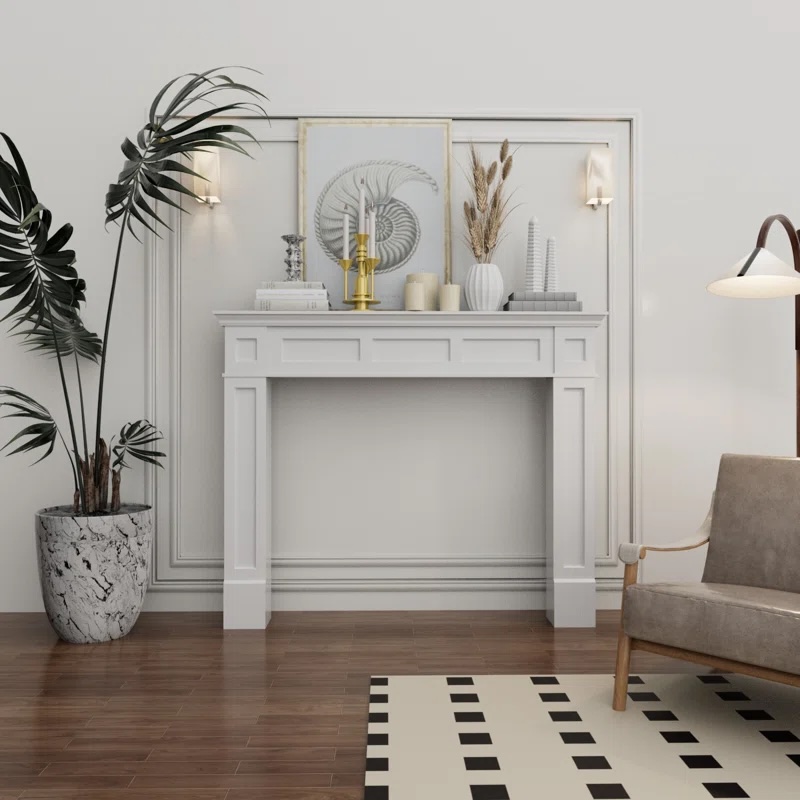
With no need to worry about the mechanics of a functioning fireplace, you can design a straightforward mantle that beautifully frames the space where a fireplace would typically be. The outcome is a seamless blend of a large picture frame and a fireplace—neither too large nor overwhelming, yet sophisticated enough to add charm to any room. Consider adding decorative elements such as candles, vases, or artwork to enhance the visual appeal and make the mantel a focal point. Choose materials and colors that complement the existing decor, creating a harmonious balance within the room. Whether your style is modern minimalist or classic elegance, a well-designed mantel can transform the ambiance, offering warmth and character without the need for a traditional fireplace. This approach not only saves space but also opens up creative possibilities for personal expression, making your living area truly unique and inviting.
 2. Cover The Fireplace Interior With A Pattern Or Décor Items
2. Cover The Fireplace Interior With A Pattern Or Décor Items
If you choose to construct a complete fireplace façade, remember that it won’t actually be lit. Utilize that empty space inside to incorporate decorative elements. You could opt for vibrant florals in the spring, a collection of candles in various sizes for a warm atmosphere, or embrace a classic look with a stack of faux wood.Another creative idea is to use the space to display a curated collection of artwork or framed photographs, adding a personal touch to your living area. For a more eclectic vibe, consider arranging an assortment of vintage books or antique trinkets, which can serve as conversation starters. During the festive season, you might adorn the space with twinkling fairy lights and ornaments, creating a cozy and inviting focal point. No matter the time of year, your fireplace façade can be a versatile canvas for expressing your unique style and enhancing the ambiance of your home.
3. Want It To Look Real
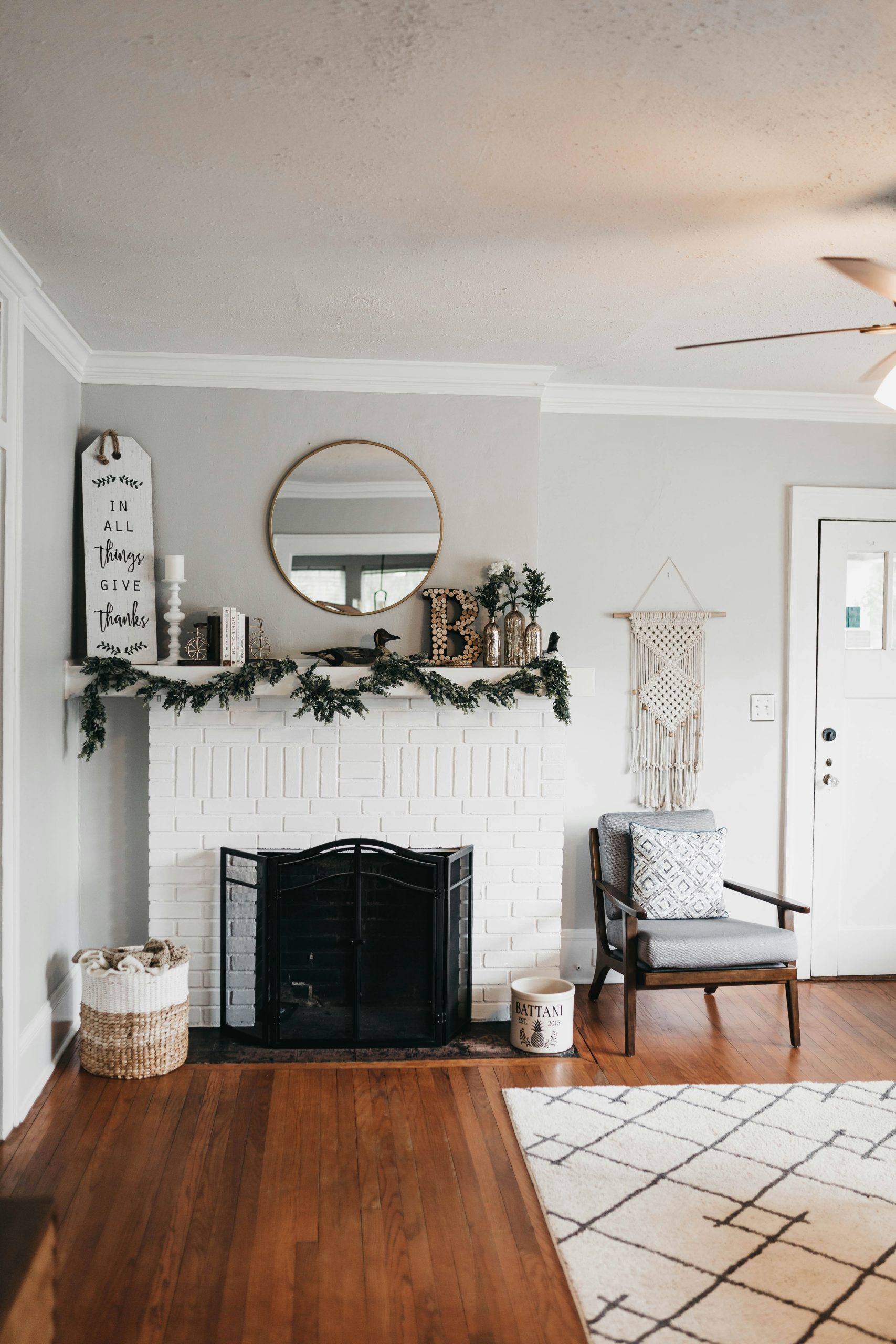
If you’re unable to install a genuine fireplace but still desire its aesthetic, you can achieve that with a few simple steps. Start by selecting a fireplace frame with depth and painting the interior in a dark color. Next, choose a fireplace screen to cover the front, and add some elegant andirons inside to perfect the overall appearance.Consider placing a collection of pillar candles of varying heights within the frame to mimic the warm glow of a real fire. For an added touch of realism, you might include a few logs or faux log sets to enhance the effect. Additionally, incorporating some twinkle lights or LED candles can provide a gentle flickering ambiance. To complete the cozy setup, arrange a comfortable armchair or a plush rug nearby, creating an inviting nook perfect for relaxation or enjoying a good book. With these elements in place, your space will exude the charm and warmth of a traditional fireplace, making it a delightful focal point in your home.
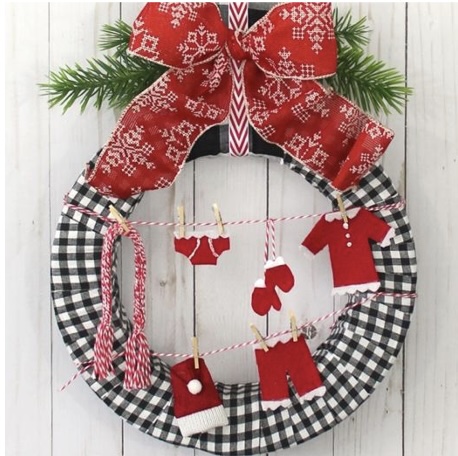 DIY Project:
DIY Project:
Make Your Own Christmas Laundry Wreath
If you want a different kind of wreath, this adorable DIY project will give you a piece of décor and a space for Santa to dry his suit! Stock up on some felt, twine and your favourite Christmas ribbon to pull it all together.
What Is Light Temperature and How Can It Change the Whole Feel of Your Home?
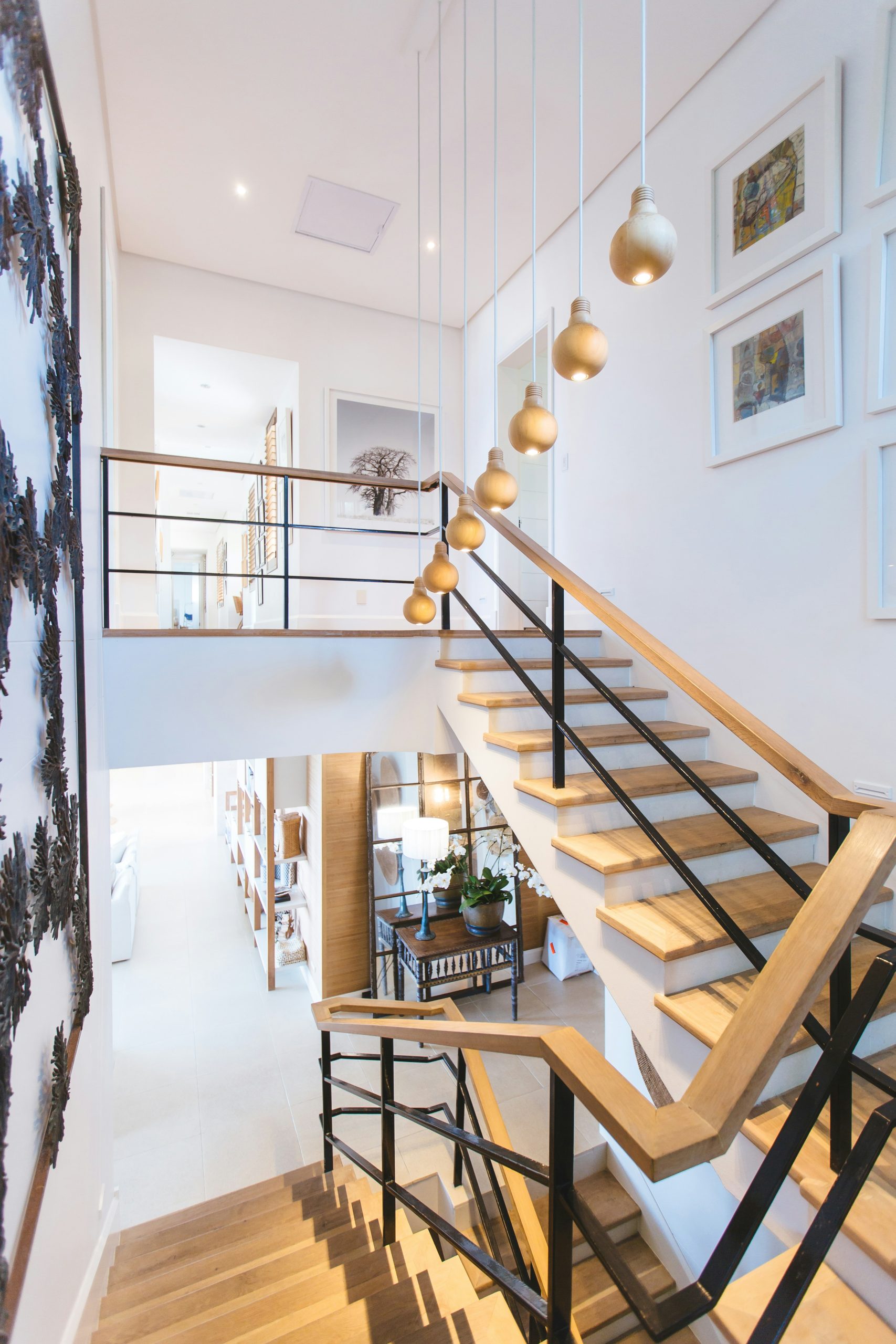
What is Light Temperature and How Can It Change the Whole Feel of Your Home?
If you have a room in your home that just doesn’t work despite the nice furniture and décor, you may be overlooking a key factor. The type of light we use has a huge impact on how we feel in a space, and while you might have taken the time to pick out the right lamps or light fixtures, you might not have considered light temperature. Light temperature refers to the spectrum that light bulbs are available in, ranging from cold to warm, and though each has benefits, here are a few tips to understanding how the light in a room can make the whole space feel different.
1. Understand The Spectrum

Light or colour temperature has a spectrum that measures in ‘Kelvins’. The lower the Kelvin temperature, the ‘warmer’ the light, while the higher temperatures are ‘cooler’ light. Warm light can range from soft orange (like the shade of candlelight) while cool light looks brighter white, the sort you’ll find in a lot of commercial spaces. Most light bulbs are available between 2700K to 6500K.
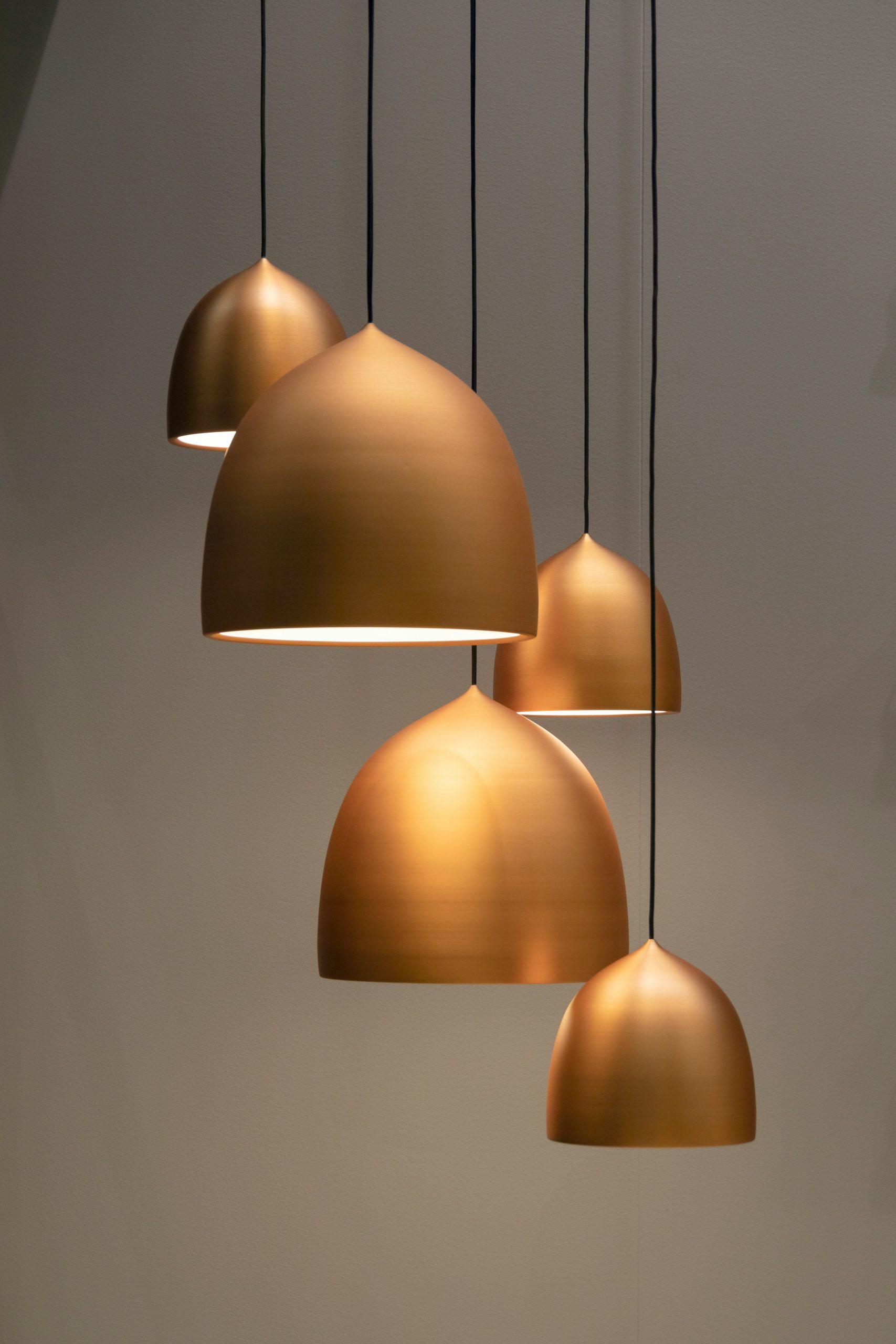
2. Think About How You Want Each Room To Feel
Lighting temperature can have a huge effect on your mood and productivity, so think about how you plan to use each space. You’ll likely want cool bright light for getting ready in your bathroom each morning, and a nice natural white will make your kitchen feel homey while still making sure you can see what you're cutting. Your bedroom and living room are where you’ll want the most ambient, warm light to make for a relaxing space at the end of the day and improve your rest.
3. Think About Mixing And Matching
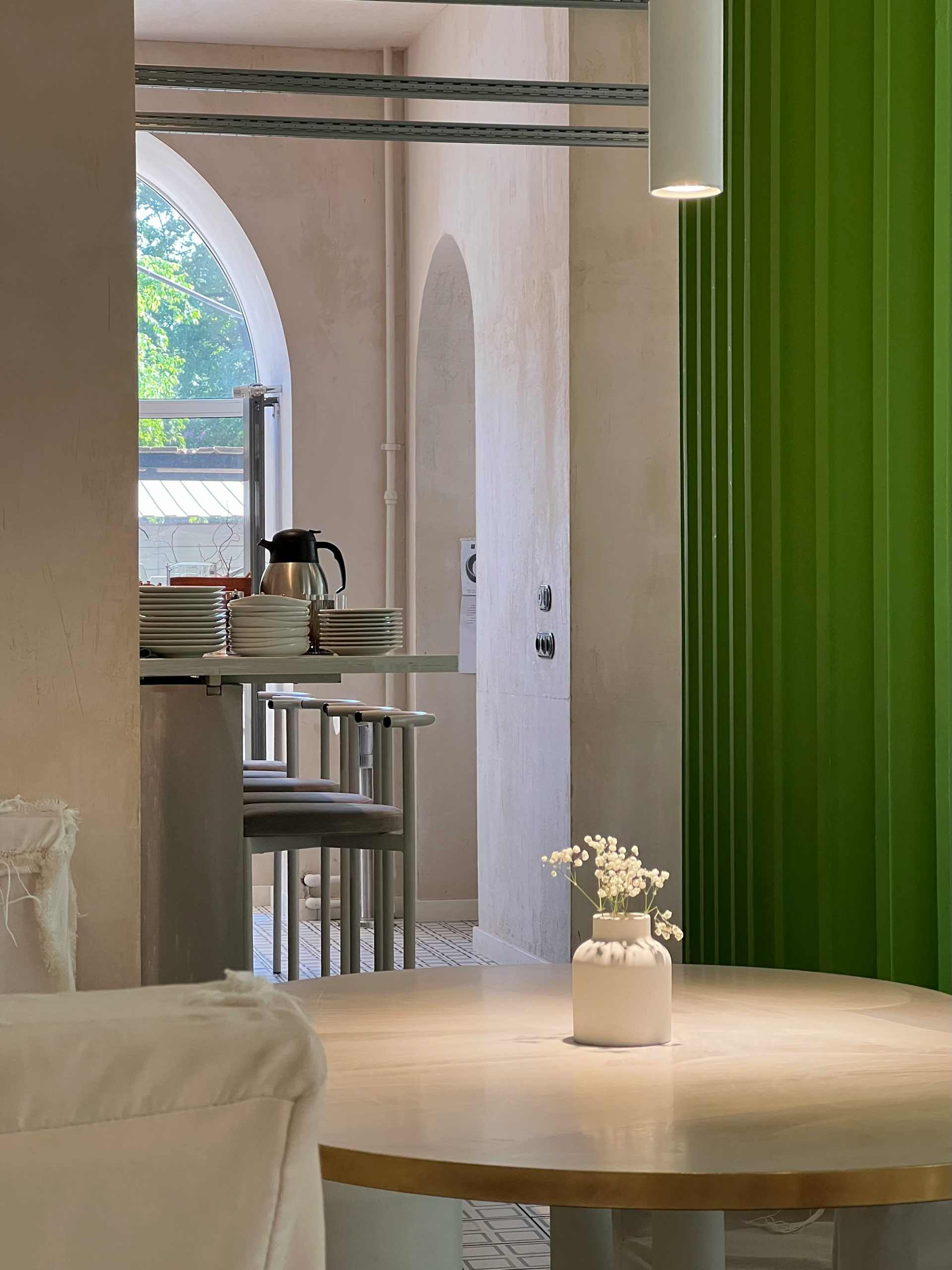
You might find that you want to go between a bright top light to see all corners of a room while also having the option of ambient light for when you just want to relax. Bathrooms are a great place to mix temperatures, and if your fixtures are set up in such a way, you can have one bright ceiling light controlled with one switch while the other ceiling light is warmer, for a relaxing soak. If the fixtures are minimal in the living room and you’d like to keep bright lights for when you need them, try bringing in lamps to add décor to your space and cast soft lighting where you’ll be seated most of the time.
4. Use Smart Technology To Get The Best Of Both Worlds
Smart bulbs have opened a whole new world of colour lighting. With bulbs you can control from your phone, you’ll be able to set lights to change between cool and warm, so think about setting wake up routines that help you get out of bed more easily, or consider setting up different parameters based on what you most need the light for – game night is different from movie night!
Gift Ideas For Homeowners
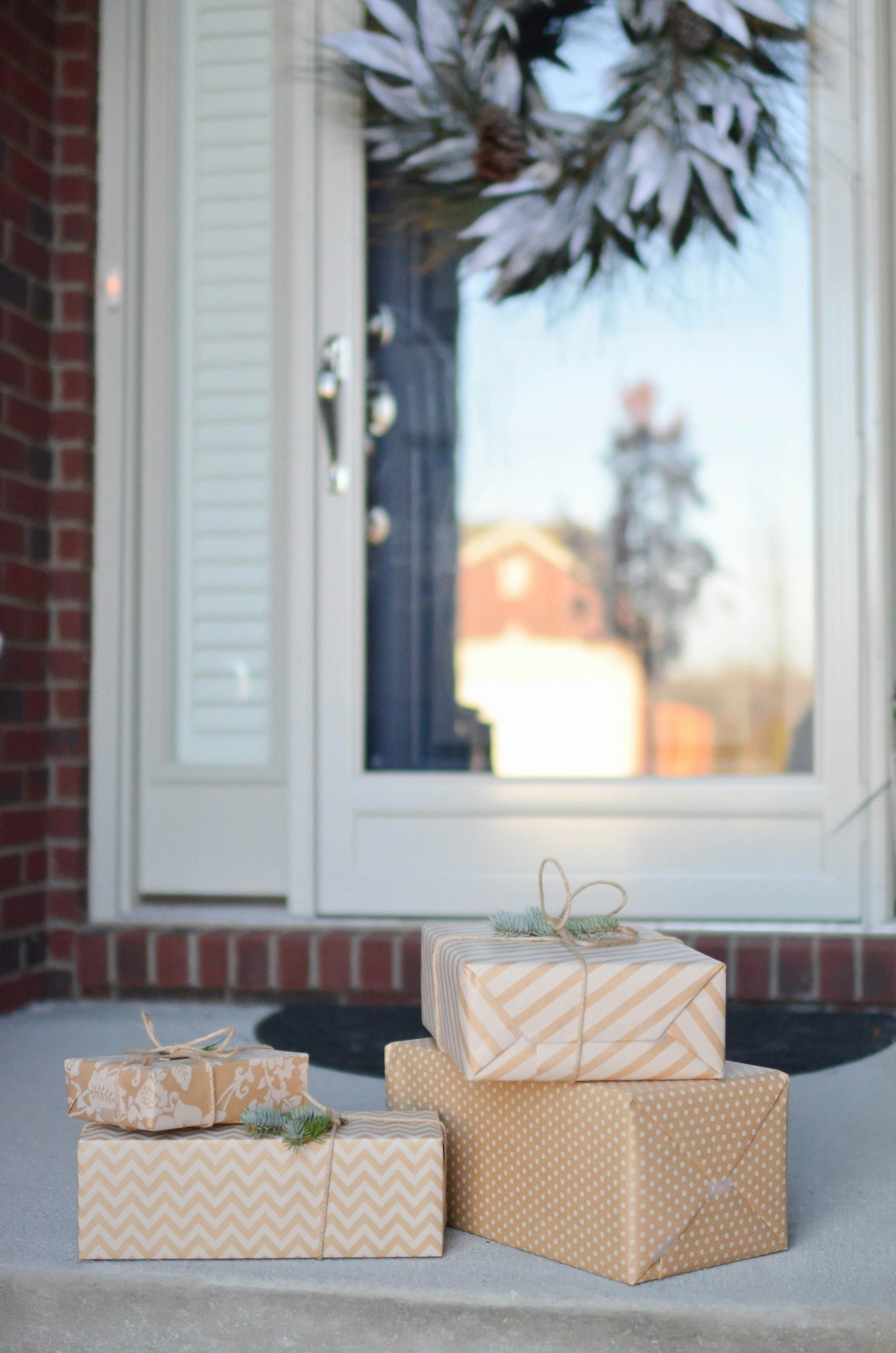
Gift Ideas For Homeowners
By Brittany Loney
 Help homeowners embrace the future with smart home technology. Consider gifting a smart speaker like the Amazon Echo or Google Nest Hub, which can control other smart devices, play music, and answer questions. Smart thermostats like the Nest Thermostat or smart lighting systems can also make daily life more convenient and energy-efficient. Additionally, it's important to consider safety options like doorbell cameras or smart locks to ensure your gift recipients feel secure and protected in their homes.
Help homeowners embrace the future with smart home technology. Consider gifting a smart speaker like the Amazon Echo or Google Nest Hub, which can control other smart devices, play music, and answer questions. Smart thermostats like the Nest Thermostat or smart lighting systems can also make daily life more convenient and energy-efficient. Additionally, it's important to consider safety options like doorbell cameras or smart locks to ensure your gift recipients feel secure and protected in their homes.
Customized Doormats:

A personalized doormat is both practical and welcoming. Opt for a design that features the family name or a fun seasonal message. It's a simple yet effective way to add a personal touch to their home's entrance. A high-quality doormat gets daily use and continuous foot traffic, continually proving its worth as a long-lasting gift.
Cozy Throw Blankets:
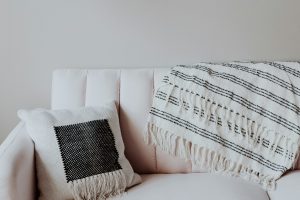 A luxurious throw blanket can add warmth and style to any living room or bedroom. Choose one made from soft materials like fleece or cashmere in a colour that complements their home décor. If you aren’t sure of their home decor choose a serene aesthetic that promotes relaxation, calming blues are best for rest, but cool colors, muted shades, or pale pastels will do. Colours associated with nature, like brown, beige, tan, and green, are associated with feeling grounded and down to earth.
A luxurious throw blanket can add warmth and style to any living room or bedroom. Choose one made from soft materials like fleece or cashmere in a colour that complements their home décor. If you aren’t sure of their home decor choose a serene aesthetic that promotes relaxation, calming blues are best for rest, but cool colors, muted shades, or pale pastels will do. Colours associated with nature, like brown, beige, tan, and green, are associated with feeling grounded and down to earth.
Indoor Plants and Terrariums:
 Bring the beauty of nature indoors with a selection of easy-to-care-for houseplants or a beautifully arranged terrarium. They not only enhance the aesthetic appeal of a home but also improve air quality. Furthermore, consider certain plants for symbolic meanings such as friendship, love, and prosperity. Houseplants also have staying power, lasting much longer than a bouquet of roses or a bottle of wine, highlighting it as a gift that keeps on giving.
Bring the beauty of nature indoors with a selection of easy-to-care-for houseplants or a beautifully arranged terrarium. They not only enhance the aesthetic appeal of a home but also improve air quality. Furthermore, consider certain plants for symbolic meanings such as friendship, love, and prosperity. Houseplants also have staying power, lasting much longer than a bouquet of roses or a bottle of wine, highlighting it as a gift that keeps on giving.
Gourmet Kitchen Gadgets:
 Find something for everyone on your list, from the home chefs to the bakers and mixologists. For the culinary enthusiast, consider high-quality kitchen gadgets like a state-of-the-art coffee maker, a spice rack with a variety of exotic spices, or a stylish cheese board for entertaining guests. Other options like a pizza stone, table runner or a cocktail shaker set can be great ideas as well!
Find something for everyone on your list, from the home chefs to the bakers and mixologists. For the culinary enthusiast, consider high-quality kitchen gadgets like a state-of-the-art coffee maker, a spice rack with a variety of exotic spices, or a stylish cheese board for entertaining guests. Other options like a pizza stone, table runner or a cocktail shaker set can be great ideas as well!
Artisanal Candles:

 Fragrant candles can create a warm, inviting atmosphere. Choose candles made from natural ingredients with enticing scents like vanilla, cedarwood, or holiday-themed fragrances like cinnamon and clove. Get creative and choose ornamental candles to match the gifting occasion and pair them with a gorgeous pillar plate which will last long after the candle has melted down.
Fragrant candles can create a warm, inviting atmosphere. Choose candles made from natural ingredients with enticing scents like vanilla, cedarwood, or holiday-themed fragrances like cinnamon and clove. Get creative and choose ornamental candles to match the gifting occasion and pair them with a gorgeous pillar plate which will last long after the candle has melted down.
Decorative Wall Art:
 Help homeowners personalize their space with unique wall art. This could be a set of prints, a custom family portrait, or even a handcrafted piece from a local artist. Art has this magical ability to ignite sparks of joy and unleash the inner creative in all of us. It adds beauty, character, and a touch of sophistication to any space. Plus, gifting wall art shows that you've put thought and effort into selecting something meaningful and unique.
Help homeowners personalize their space with unique wall art. This could be a set of prints, a custom family portrait, or even a handcrafted piece from a local artist. Art has this magical ability to ignite sparks of joy and unleash the inner creative in all of us. It adds beauty, character, and a touch of sophistication to any space. Plus, gifting wall art shows that you've put thought and effort into selecting something meaningful and unique.
Subscription Boxes:
 Subscription boxes land in a good-gift sweet spot of being thoughtful without requiring too much effort. All you have to do is select the one that best matches your recipient’s interests, and your gift will continue to surprise and delight for several weeks or months. Consider a subscription to a home-focused service, such as a plant delivery service, a wine club, bath bombs and goodies, or a gourmet meal kit.
Subscription boxes land in a good-gift sweet spot of being thoughtful without requiring too much effort. All you have to do is select the one that best matches your recipient’s interests, and your gift will continue to surprise and delight for several weeks or months. Consider a subscription to a home-focused service, such as a plant delivery service, a wine club, bath bombs and goodies, or a gourmet meal kit.
Outdoor Entertaining Accessories:

For those who love to entertain, outdoor accessories like a fire pit, patio heaters, or elegant garden lights can transform their backyard into a cozy retreat. Furthermore, waterproof outdoor pillows, planters, placemats, or cozy blankets fit to warm up for outdoor spaces can be excellent gift options.
Books on Home Design:
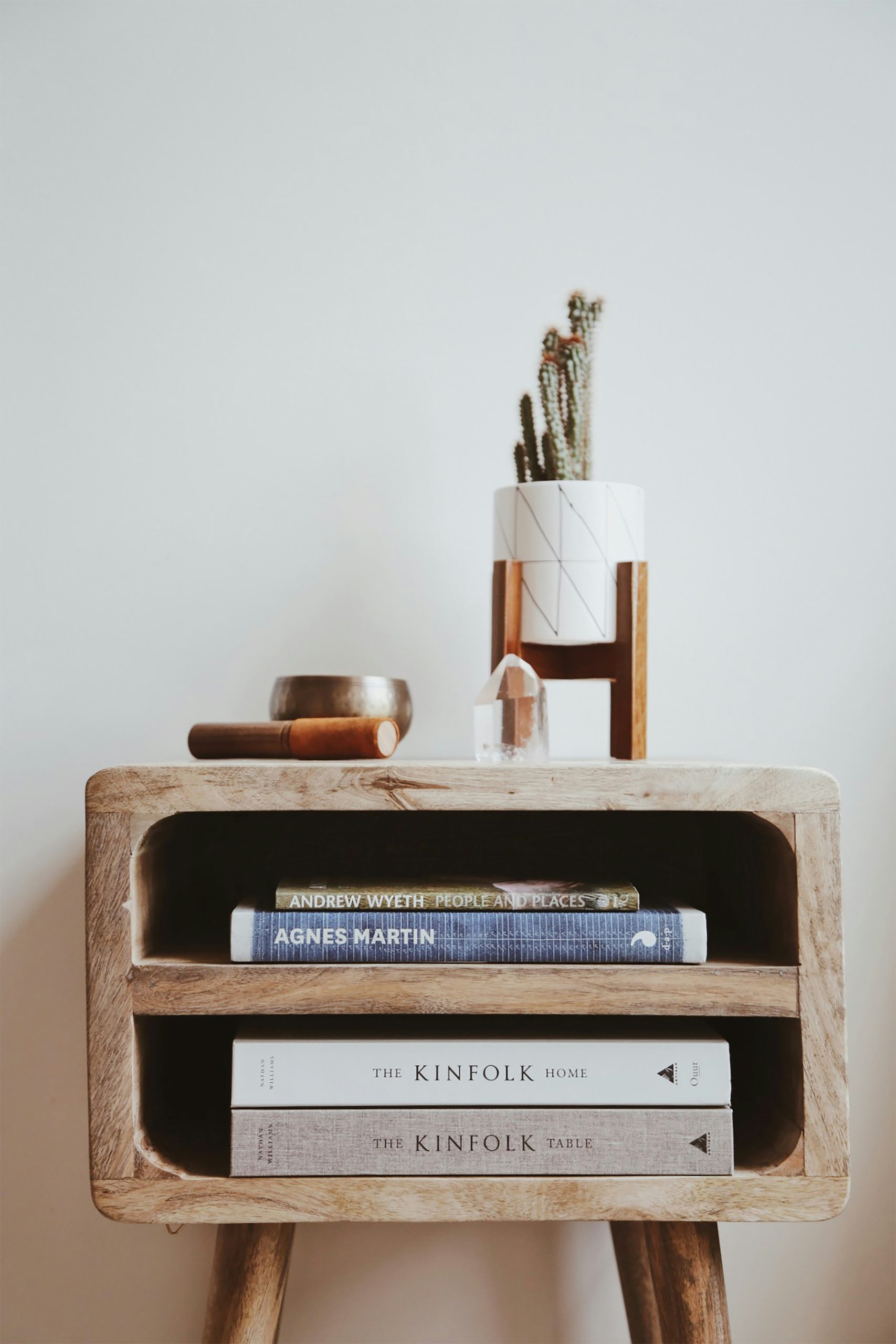 Inspire creativity with beautifully illustrated books on home design and décor. They can serve as both a source of inspiration and a lovely coffee table display. ‘The Minimalist Home’ can be a unique gift that rouses new conversation topics in meetings to come.
Inspire creativity with beautifully illustrated books on home design and décor. They can serve as both a source of inspiration and a lovely coffee table display. ‘The Minimalist Home’ can be a unique gift that rouses new conversation topics in meetings to come.
No matter which gift you choose, the key is to consider the recipient's personal style and needs. Thoughtful, well-chosen gifts can enhance the joy of the holiday season and make a lasting impression long after the Christmas lights have been taken down. Happy gifting!
Loud Budgeting: The New Way to Save for a Home

 In the journey towards homeownership, saving for a down payment is just the beginning. Enter ‘loud budgeting’—a transformative approach that’s catching on among savvy savers. Unlike traditional budgeting, loud budgeting involves openly sharing your financial goals and spending habits with your community, whether it’s friends, family, or followers online. This openness fosters a supportive environment, encouraging you to stick to your budget and normalize financial discussions.
In the journey towards homeownership, saving for a down payment is just the beginning. Enter ‘loud budgeting’—a transformative approach that’s catching on among savvy savers. Unlike traditional budgeting, loud budgeting involves openly sharing your financial goals and spending habits with your community, whether it’s friends, family, or followers online. This openness fosters a supportive environment, encouraging you to stick to your budget and normalize financial discussions.
Why Loud Budgeting?
Loud budgeting demystifies finances, making money talks more approachable. By sharing your budgeting journey, you not only hold yourself accountable but also inspire others to reconsider their financial habits. It’s about making informed decisions that align with your goals, like declining costly social events to save for a home.
Myths and Misconceptions
Budgeting comes with its share of myths. Some believe it’s synonymous with no fun, but it’s about prioritizing meaningful experiences over unnecessary expenses. Others think budgets are complex, yet numerous tools simplify the process. Remember, a budget isn’t restrictive; it’s a flexible guide to achieving your financial dreams.
Steps to Effective Loud Budgeting
- Define Your Goals: Whether it’s buying a home or building an emergency fund, clarity will guide your decisions.
- Track Your Spending: Utilize tools like the Financial Consumer Agency of Canada’s Budget Planner to understand your financial flow.
- Identify Cutbacks: From unused subscriptions to dining out, find areas to save.
- Start Small: Incremental savings can grow significantly over time.
- Avoid Impulse Buys: Give yourself time before making purchases.
- Share Your Journey: Talk about your goals to build a network of support and accountability.
Loud budgeting is more than a trend—it’s a movement towards financial transparency and empowerment. By adopting this approach, you’re not just preparing to buy a home; you’re reshaping how you and your community perceive and discuss money. In a world where keeping up with the Joneses is passé, loud budgeting champions financial authenticity and smart saving.
Ready to start your loud budgeting journey? Embrace the conversation and watch your savings grow!
Chat with me today.
Updating Your Home With The Seasons – Summer to Fall Copy
- Lifestyle Back To School Tips & Tricks Brit’s Blog Back To School Tips & Tricks Staying organized is crucial for families, whether at the same school or a new one. A family “command center” centralizes important items like bills and homework, preventing clutter and misplaced items. Setting up a functional space, whether in a home office or near the entryway, can help […]
- Lifestyle Is Life Really Better Poolside? As summer temperatures rise and heatwaves become more frequent, the idea of lounging by a luxurious pool in your own backyard can seem like the ultimate dream. But is life truly better poolside? Before you take the plunge into buying a home with a pool, there are several important factors to consider. Does a Pool […]
- Neighbourhood Insight From Your Lifetime Local Hidden Gems: Benefits of Buying In A Less Popular Location Hidden Gems: Benefits of Buying In A Less Popular Location Given the price of housing in Canada today, it’s not surprising people are willing to consider less sought-after locations in search of affordability. But in addition to saving money, many buyers are finding these “hidden gems” are great places to call home, as they typically […]
- Neighbourhood Insight From Your Lifetime Local Ellison It seems only poetic to start my neighbourhood insights with the one in which I grew up. With Kelowna expanding, it’s becoming increasingly difficult to find a quiet neighbourhood that still lies within city limits. Look no further. Ellison, a neighbourhood with rural community charm on the edge of a bustling city. The Ellison community […]
- Neighbourhood Insight From Your Lifetime Local Neighbourhood Insight From Your Lifetime Local It’s not surprising to me that people who vacation here, or those who hear about the active four-season lifestyle, end up wanting to call Kelowna home. I have always had the pleasure to call this Valley home and after traveling much of the world, I have not found many places like it. More people are […]
- Lifestyle But What About Downsizing? How strange the word sounds to ‘downsize’. In a culture of bigger, better and more, this concept is foreign and opposing to the majority of society’s beliefs. Society has taught us that big houses filled with new and shiny toys means that we are successful and have made something of ourselves; and this should make […]
Updating Your Home With The Seasons – Summer to Fall

Back To School Tips & Tricks
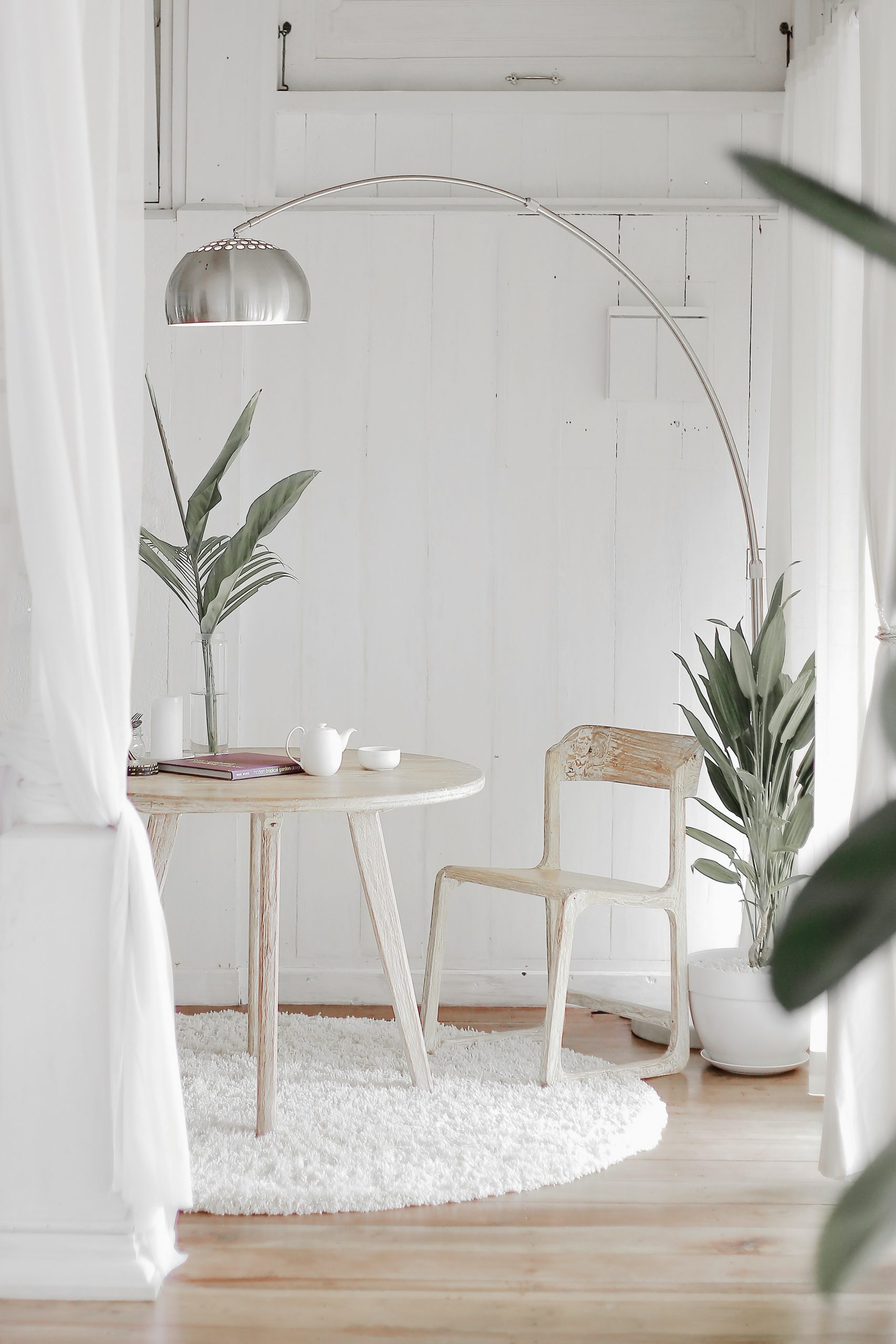
Brit's Blog
Family
'Command Center'

Creating a designated space for family items improves home organization and efficiency. It can also act as a drop zone when you enter or leave your home to keep you and your family from misplacing important items.
Idea:
Install an acrylic wall calendar to keep track of appointments and after-school activities, a faux-leather folio to drop mail and permission slips into, brass hooks to hang keys and a kraft paper roller for jotting down to-do's.
Organize
Your Entry
Start your day with a well-organized entryway, complete with hooks for jackets, purses, and backpacks. Utilize decorative bins to hide and store items such as umbrellas, shoes, hats, gloves, sports equipment, and any other essentials your family requires before heading out. Establish a routine where family members put away their backpacks and gear as soon as they return home.
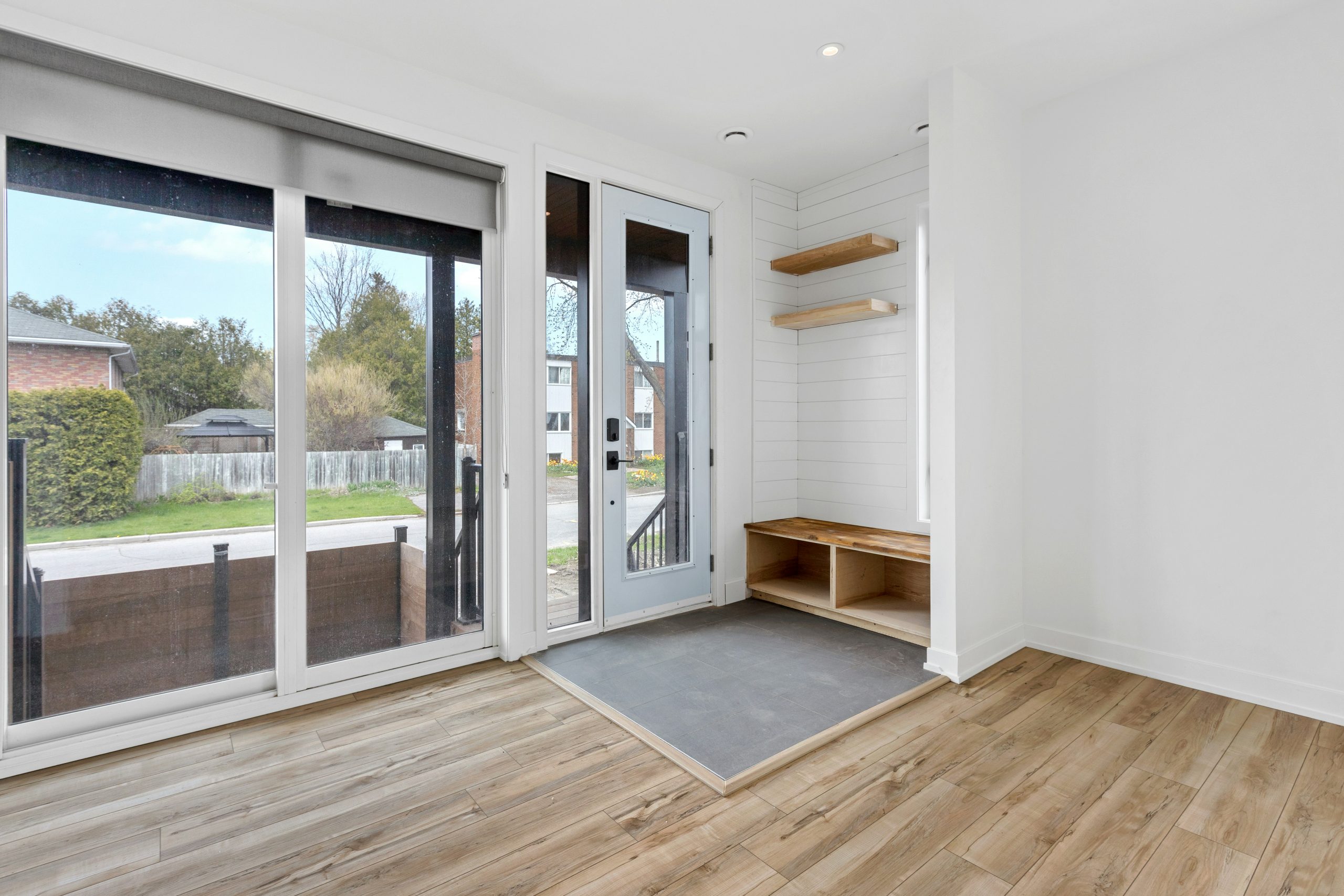
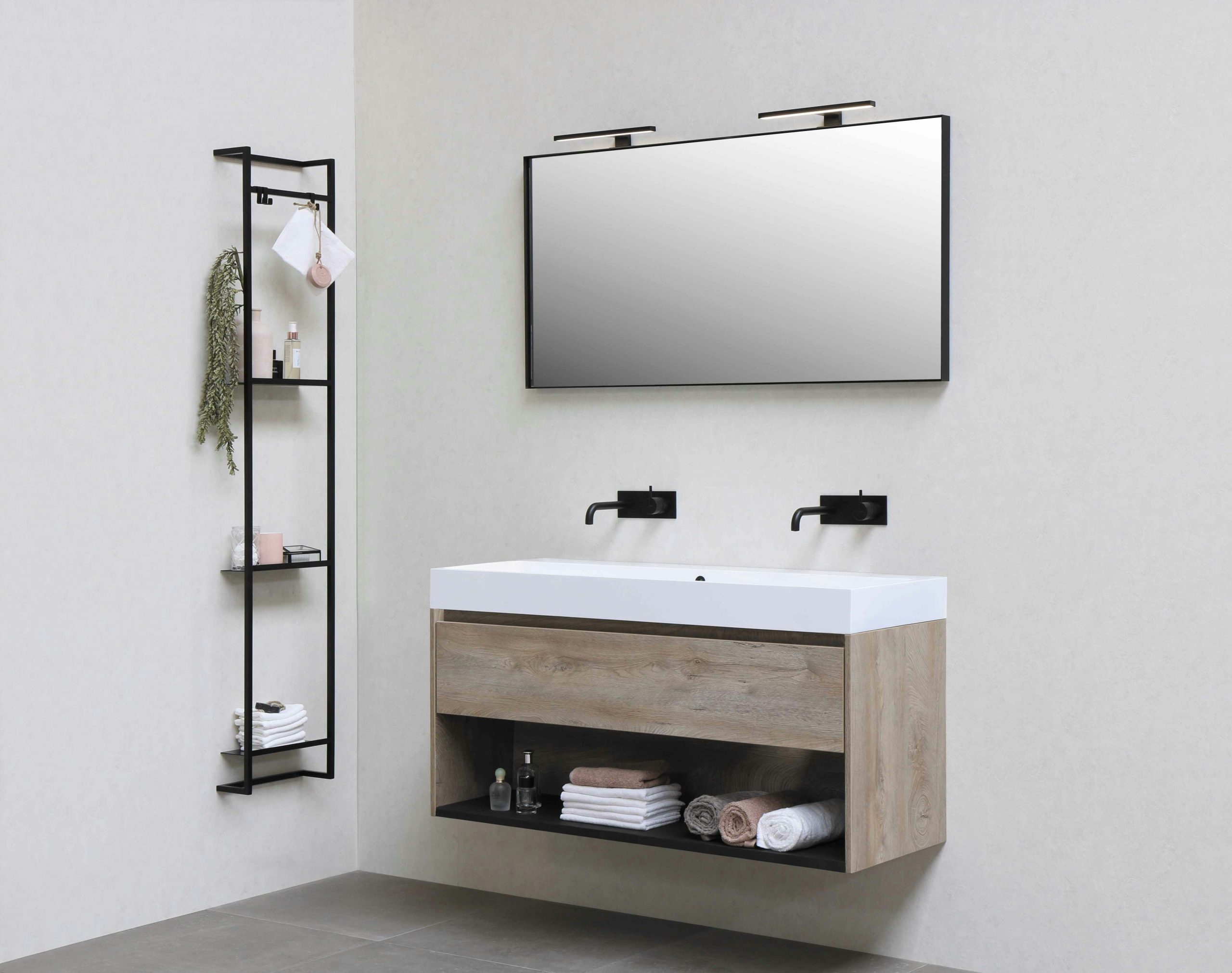
Streamline
Your Bathroom
Keep mornings running smoothly with an organized bathroom. From hot tools to skincare products, place everyday essentials into wire baskets under the vanity. Now, you can grab what you need in a flash. Keep your family’s morning essentials, like hair products, in a bathroom caddy to make things a breeze to find.
Arrange Your Closet


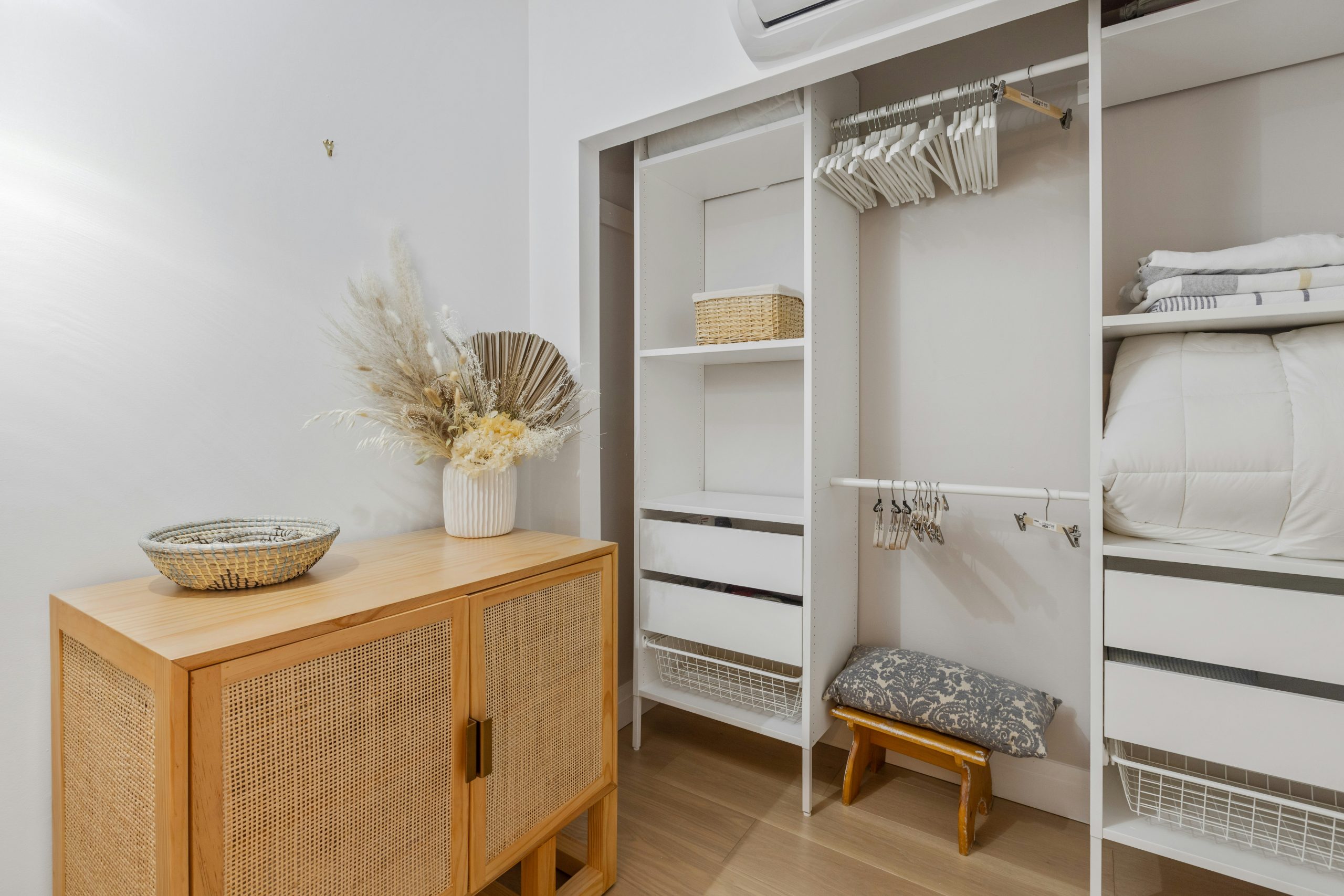
Is Life Really Better Poolside?

As summer temperatures rise and heatwaves become more frequent, the idea of lounging by a luxurious pool in your own backyard can seem like the ultimate dream. But is life truly better poolside? Before you take the plunge into buying a home with a pool, there are several important factors to consider.
Does a Pool Fit Your Lifestyle?
First and foremost, think about whether owning a pool aligns with your lifestyle. If your family enjoys spending leisurely summer days in the backyard, a pool might be the perfect addition. However, if your summers are packed with vacations, sports practices, or other activities, you may not use the pool enough to justify the expense and upkeep.
Practical Considerations
Pool Suitability
Evaluate if the pool suits your needs in terms of size, style, and type. Think about the location, shape, and maintenance requirements. A small, above-ground pool might require less upkeep than a large, in-ground one, but it might not provide the same aesthetic appeal.
Pool Condition
Assess the condition of the pool carefully. Are there any signs that major repairs are needed soon? How long will the pool likely last before significant investment is required? A pool inspection can help uncover any hidden issues, especially with in-ground pools that can be more challenging and expensive to repair or replace.
Important Questions to Ask
– When viewing a home with a pool, consider asking the following questions:
– Is the pool builder’s warranty still valid?
– How often was maintenance performed on the filter and the entire pool?
– What type of sanitization system is used, and are there any issues with it?
– Is the heating system operational?
– How old is the pool, and have there been previous issues?
The Cost of Pool Ownership
Owning a pool comes with ongoing costs for maintenance, repairs, utilities, insurance, and equipment. These expenses can range from a few hundred to several thousand dollars annually, depending on factors like pool size, equipment efficiency, and how frequently you perform maintenance.
Maintenance and Safety
Regular maintenance tasks include:
– Skimming debris
– Cleaning the strainer basket
– Scrubbing the pool walls
– Vacuuming
– Testing water quality
Ensuring pool safety is crucial, as the homeowner is responsible for any accidents. The time commitment and diligence required for pool upkeep should not be underestimated.
Resale Value
A well-maintained pool can enhance a home’s appeal, especially in regions with hot summers. However, the added value depends on the pool’s condition and the buyer’s preference. Some potential buyers may see a pool as an asset, while others might view it as a liability due to the associated maintenance and costs.
Personal Anecdote: A Splash of Reality
I have talked to a few clients and they generally came to this consensus: ‘Take it from someone who once thought a pool would be the pinnacle of summer fun. I remember my excitement when we bought our first home with a pool. For the first few weeks, it was a dream come true—my kids splashed around, and we hosted weekend barbecues. But soon, the reality of constant cleaning, balancing chemicals, and unexpected repairs set in. While it was indeed a joy during those sweltering days, the hidden work and costs made me appreciate the full commitment required to keep that slice of paradise pristine.’
In conclusion, while life poolside can be incredibly rewarding, it comes with significant responsibilities and costs. Carefully consider whether it fits your lifestyle and budget before making the investment. If you decide to take the plunge, a well-maintained pool can offer years of enjoyment and potentially increase your home’s value.
Hidden Gems: Benefits of Buying In A Less Popular Location

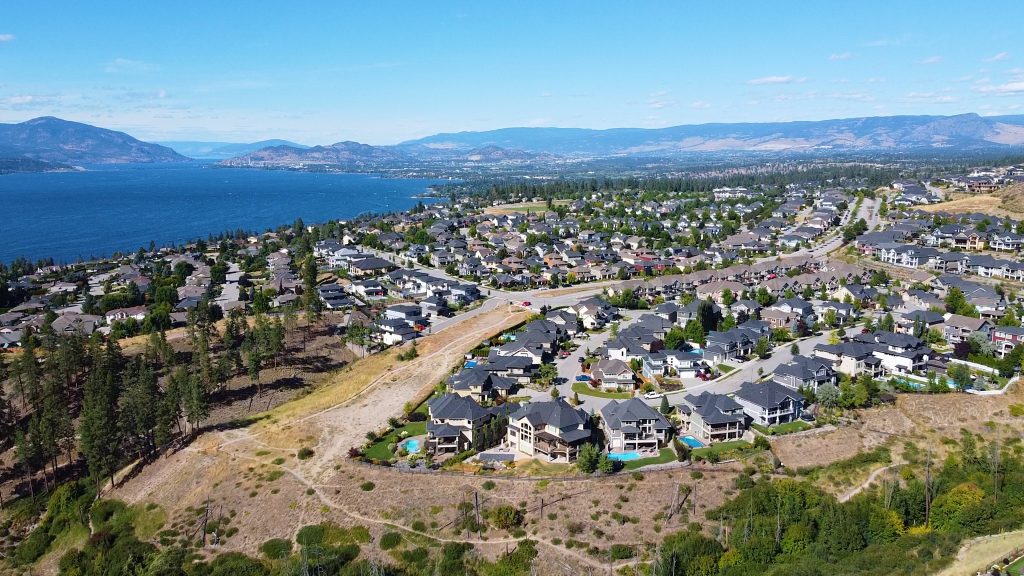
Hidden Gems: Benefits of Buying In A Less Popular Location
Given the price of housing in Canada today, it’s not surprising people are willing to consider less sought-after locations in search of affordability. But in addition to saving money, many buyers are finding these “hidden gems” are great places to call home, as they typically have benefits they hadn’t even thought of before they made an offer.
Buying on a Bus Route or Busy Road
If you’re willing to compromise on location, you can get a newer home, a larger lot, and lower property taxes for the same money as a more ‘ideally located’ neighbourhood. Noise concerns and traffic are now being trumped by several benefits:
- Shorter Commutes: Living on a bus route or busy road often means quicker access to public transportation, reducing your commute to work or grocery stores.
- Priority Snow Plowing: Your road will likely be plowed first after every snowfall, ensuring that you’re never snowed in.
- Environmental Impact: By using public transportation more frequently, you can reduce your environmental footprint by leaving the car at home.
Proximity to an Airport
If you’re okay with the hum of airplanes departing throughout the day, living near an airport can offer unique advantages:
- Time and Stress Savings: You’ll save time and reduce stress when it comes to flying, as you’ll be just a short drive away from the terminal.
- Income Potential: Increase your income potential by renting out part of your home to short-term business or holiday travelers. The convenience of your location can be a huge draw for guests.
Up-and-coming Neighbourhoods
These often overlooked areas usually give buyers more home at a lower price and can often see:
- Pride of ownership: Those who can see the vision of where a neighbourhood is headed and have the ability to jump in now can ride those home values up over the years together with neighbours that take care of one another;
- Investment Opportunity: Gives the buyer the ability to invest in renovations that add real value to their home; and
- Above-average Increases in Property Values: Up-and-coming neighbourhoods are often the best investments as the neighbourhood becomes more popular.
Being next to a school, hospital, or fire station
Families, listen up! If you have younger children, buying next to a school can save a lot of time and money as they can walk to school and gives them a sense of responsibility. However, people who like peace and quiet tend to prefer a home that isn’t too close to a school, hospital, or fire station. But living across the street from some of these facilities can make life a lot easier for busy families when you think of features like:
- Close proximity: the density of parks, playgrounds, libraries, and daycares are much more nearby schools;
- Lower Home Insurance: Proximity to a fire station reduces your insurance premiums;
- Potential for Higher Resale Values: As population density continues to drive demand for schools and bus routes, future buyers with families of their own one day may pay more for this accessibility; and
- Emergency Response Time: Quick access to fire or medical services in the event of an emergency, response times are significantly decreased.
Remote or suburban areas
Many buyers previously steered clear of remote and suburban areas, opting for more central locations. However, there has been a shift as some buyers now actively choose these neighborhoods for a slower, more peaceful lifestyle.
In a world saturated with constant stimulation, numerous buyers are opting for rural living to enjoy a more peaceful environment. Suburban areas offer additional space, bigger houses, and greater affordability.
Apart from tranquility, rural living offers benefits such as:
- Lower property prices: Compared to urban regions
- Strengthening of Relationships: A strong community bond
- More Space: Greater lot sizes and living spaces suitable for growing families
Concerned about missing the conveniences and activities you are accustomed to in the city? Remote areas may be a wonderful place to raise children, with easy access to nature and a close-knit community.

In conclusion, while less popular locations may come with perceived downsides, the upsides can far outweigh them. From financial savings to lifestyle improvements, these hidden gems offer more than meets the eye. So next time you're in the market for a new home, consider looking beyond the usual hotspots—you might just find your perfect match in an unexpected place.


 Facebook
Facebook
 X
X
 Pinterest
Pinterest
 Copy Link
Copy Link
